|
Projekt Cact4us 2.0 leidis aset aprilli kuus Lõuna-Itaalia väikses Giovinazzo linnas mis paikneb Aadria mere ääres. Nädalase projekti eesmärk oli tõsta euroopa noorte kliimaalasi teadmisi ning anda ülevaate hetkel maailmas toimuvast. Kokku osales ligi 30 noort üle Euroopa. Osalejad olid: Eestist, Itaaliast, Lätist, Hispaaniast, Küproselt ja Portugalist.
Projekti jooksul sai palju uusi teadmisi projekti teema kohta. Kuna noored olid üle Euroopa koos siis on olukorrad riigiti erinevad seega pea iga teemaga anti ülevaade kuidas kodumaal on asjad korraldatud. Teemad varieerusid päeviti, näiteks arutati kliimasoojenemise, kasvuhoonegaaside, ületootmise/tarbimise ja prügi teemadel ning palju muud. Projekti korraldustiim tõi meieni palju toereetilisi, praktilisi ning elulisi näiteid. Ühel lõunapoolikul külastas meid Itaalia mahepõllumajandusega tegelev härrasmees, kes tutvustas oma tegemiste ja farmi kohta. Tööd tehti üheskoos või väikestes gruppides ning suhtlus käis inglise keeles. Projekt ei piirdunud ainult tegevusega elamispindade juures. Näiteks käisime ükskord ranna ääres prügi korjamas ning mõne tunniga korjati kokku ligi 100kg prügi. Nädala jooksul anti meile üks terve vaba päev ning igaüks võis teha vaba ajaga just seda, mida hing ihkas. Enamus osalejatest läks linna avastama, kultuuri nautima ja jäätist sööma. Projekt oli väga põnev imelises väikelinnas Itaalias ning Eesti tiim jäi siin veedetud ajaga väga rahule ning soovitab kõigil, kel võimalus minna vähemalt korra elu jooksul Erasmus+ raames Euroopaase kauneid kohti avastama ning samal ajal uusi teadmisi omandama
0 Comments
From 1-11 april our Estonian team of 5 people spent time in Vatra Dornei, Romania, to learn about entrepreneurship. Other participating countries were Italy, Spain, Bulgaria, Latvia, Poland and of course Romania. There were also people from Rwanda, Zimbabwe, India and Kyrgyzstan.
First two days we were focusing on getting to know each other by playing many different ice breaker and energizer games. On the third day when all of the participants were together we began to focus on main topic. At first organizers taught us more about Erasmus+ possibilities and basics of business creation. Many of our tasks focused on quick presentations or better known as elevator pitch. For example we were given a task to introduce ourselves in few minutes. Later we were put in pairs, we had to get to know our partner and introduce that person in few minutes. At some point we had to create our own business idea and introduce it to the audience in few minutes. That´s how we practiced presenting things quickly and confidently. Each of us was given a task to come up with our own business idea. I came up with idea which I called 'transpofun'. My idea focused on making transportation more fun for people. What I didn't know though was that the idea we chose, was gonna be the one that we were gonna be working on and evolving throughout the whole project. So it was challenging but at the same time fun for me, trying to make silly and unrealistic idea into something professional and realistic. Culture evenings were very diverse, there were people from more countries than 7, and everyone wanted to present their countries which meant that we got to learn a lot about many different cultures. Our Estonian team of 5 was also pretty diverse. I feel like we got along nicely and managed to fulfill all of our tasks and goals. I definitely learned many new things about entrepreneurship, other cultures and also myself. In conclusion I would say that this project was definitely worth it and I suggest other people to participate in Erasmus+ youth exchanges. Roman Stefanjuk 1.-11. aprillil 2022 toimus Rumeenias Vatra Dorneis noortevahetusprojekt „Be an Euroentrepreneur“ või lühendatult lihtsalt BEE. Eesti delegatsiooni kuulus 5 inimest. Kokku tuli projektile üle 30 inimese, kes esindasid 6 erinevat riiki. Lisaks Eestile olid esindatud veel Läti, Poola, Itaalia, Bulgaaria ning korraldajamaa Rumeenia. Nagu nimest võib järeldada, oli projekti teemaks ettevõtlus. Projekti hariduslikumas pooles saime põgusalt tutvuda SWOT analüüsi ja SMARTER meetodiga. Lisaks sellele sai igaüks välja mõelda oma ettevõtte idee, millest valiti välja parimad, mida hakati edasi töötama. Neid ideid arendati tiimidega edasi ning kanti ärimudeli lõuenditele. Lisaks teoreetilisematele tegevustele ettevõtlusest, tutvustati meile ka kohalikke piirkonnas asuvaid ettevõtteid. Need ettevõtted olid väga seinast-seina, tutvustati arvutipoodi, majutusasustusi ning kalakasvatust. Lisaks võimalusele kuulata nende inimeste lugusid ning küsida neilt küsimusi, oli see ka suurepärane võimalus tutvuda rumeenlaste külalislahkuse kultuuriga. Projekt andis ka võimaluse lävida ning saada lähemalt tuttavaks mitmete erinevate riikide noortega. Olgu see siis söögilauas, tuba jagades, basseinipeol, looduses jalutades või tutvustades endi kultuure kultuuriõhtutel. Ka looduslikult oli asukoht väga kaunis. Olukord, kus lähed majast välja ning näed igas ilmakaares kuuskedega palistatud mäenõlvasid, on miski, millest Eestis tihti suur igatsus tekib. Kindlasti naasime me kõik uute teadmistega ettevõtlusest, mida meil kõigil on võimalik oma eludes rakendada. Leidsime ka palju uusi tuttavaid, kes loovad põhjuseid külastada erinevaid kohti üle maailma. Juhan The project took place in Palermo, Italy. The venue was connected to an old church and the project mainly took place in the open-air area. The central activity of this training course was staging a theatre performance on the topic of the Antigone myth – an ancient Greek classic.
During the week we discussed the myth, exploring different viewpoints and interpretations, and living into the theatrical self expression. A lot of the participants were somehow previously connected to performing arts and theatre, which boosted the whole experience, and contributed to a professional atmosphere. We also discovered main ways of movement on stage, and were encouraged to demonstrate our creativity in situation-tasks. On the last day, we presented the 15-minute performance to a live audience. It was well received, and even the priest from the neighbouring church came to see our Antigone theatre piece. I believe the weeklong performance noise had evoked his interest. After the performance, we had a discussion with the audience, where we received feedback, and the participants could share their thoughts and kind words. It was a magnificent experience and it was clear that Valerio had put a lot of effort into this training course. The first part of this two-part project took place during the last week of February 2022 in the serene countryside of Occitania (South-West region of France). The general aim of this training course was to enhance participants' critical thinking skills in different topics. The first part focused mainly on the personal, societal, intercultural and humanitarian fragments of critical thinking.
Immediately on the first real project day, we jumped heads-on into different topics and segments that carve our way of thinking, expressing and judging. The way the first session was executed was absolutely brilliant because instead of using regular in-formal session making techniques, the organisers re-arranged an exhibition of critical thinking which they had recently experienced in a nearby Toulusean museum. In my opinion it was a fantastic idea because it gave the participants an immersively practical introduction into the vast topics of critical thinking. (In case you want to hear more details about this exhibition, don’t hesitate to contact Via Brachy). Of course this exhibition wasn’t the only highlight of this project. The organisers often used different creative and playful youth work related techniques. We three in the Estonian team gathered many new ideas that can be implemented in our own personal and youth/cultural work related lives. One of the highlight techniques enacted in my opinion was surely the “Opinion box”, which basically means putting two teams of 2-4 members in a small boxing rink looking area and giving them a problematic societal issue to debate about. The main difference between this and a regular debate is that the competitors don’t have the opportunity of choosing an arguing side. In addition it wasn’t as official and politically correct as a regular debate since the competing teams had only around 2 minutes for preparing their arguments. Thanks to this we were able to understand through practical experience how easily people can lose their critical thinking power when they are in a hectic argument with someone. (NB! In the video link added below they were “fake boxing”) During the week we also learned a lot about our own prejudices and unconscious discrimination. Almost everyday in one of the prejudice related sessions there was this short part where we had a “Walk the talk” thingy, where we all had to go on a ten minute walk in pairs, during the walk both sides had to talk uninterruptedly for 5 minutes straight about a given topic. Last but not least I would also like to mention the general quality and cleverness of this course and its participants. It was surely a very eye-opening training course and the diversity of ages and backgrounds of the participants added many useful and thoughtful layers to this course. Participating in a project organised by Via Brachy is an experience I would definitely recommend. Mark-Robert |
ProjektiblogiProjektikogemused alates 2021-st aastast. Archives
July 2024
Categories |
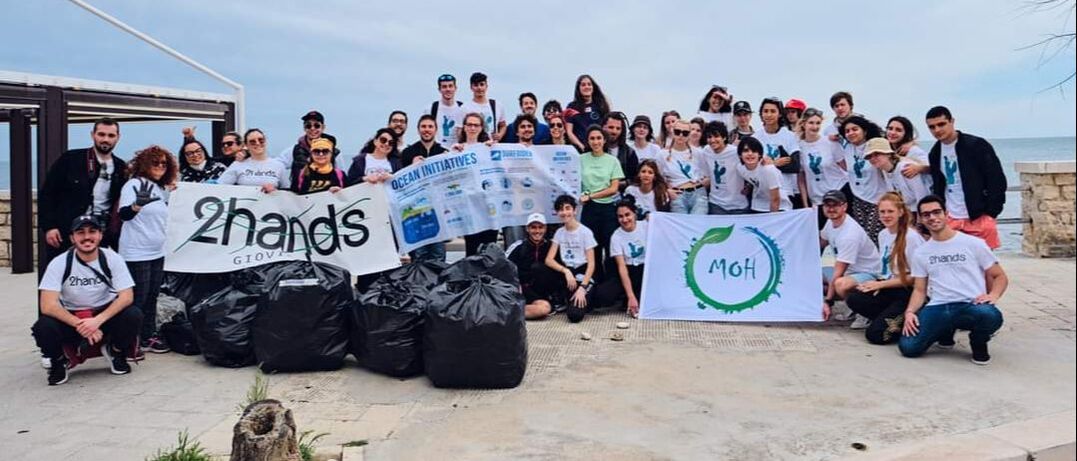
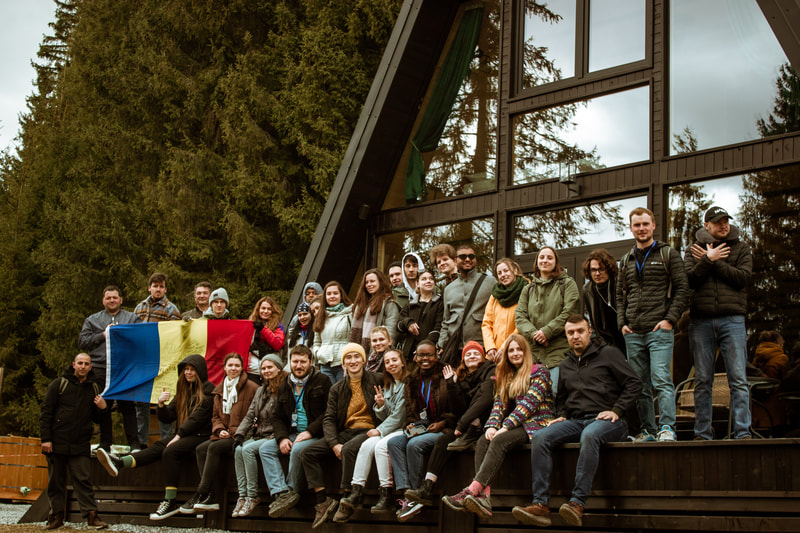
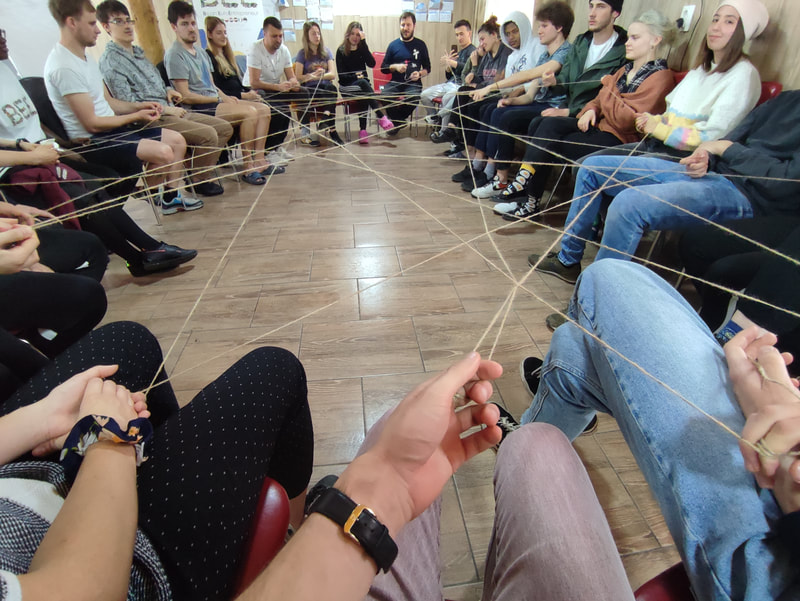
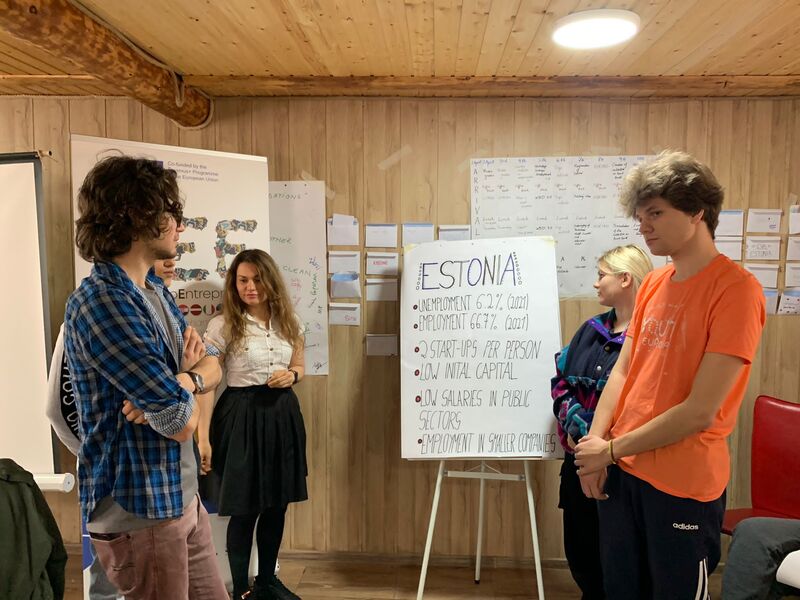
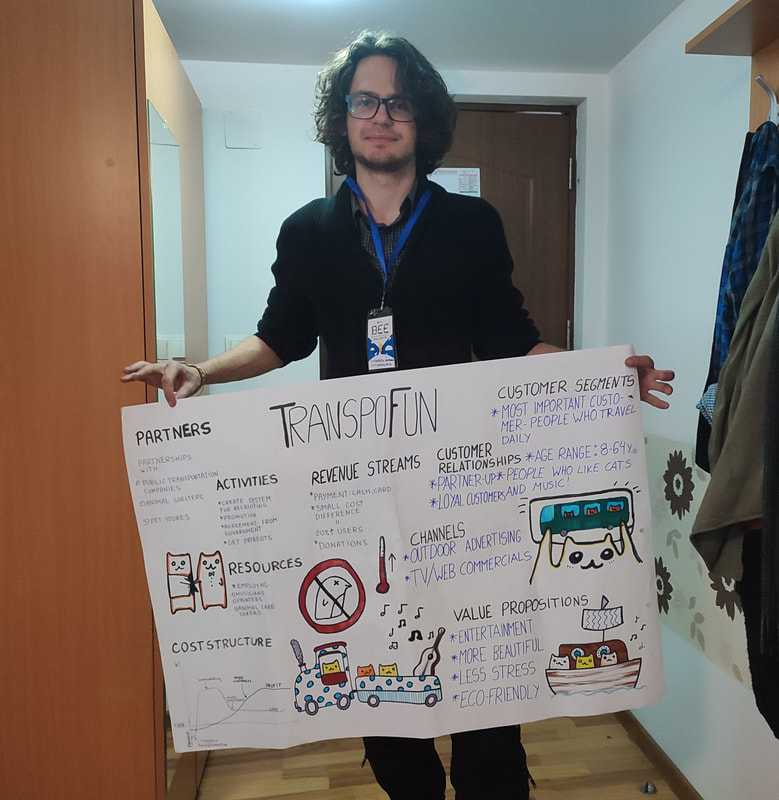
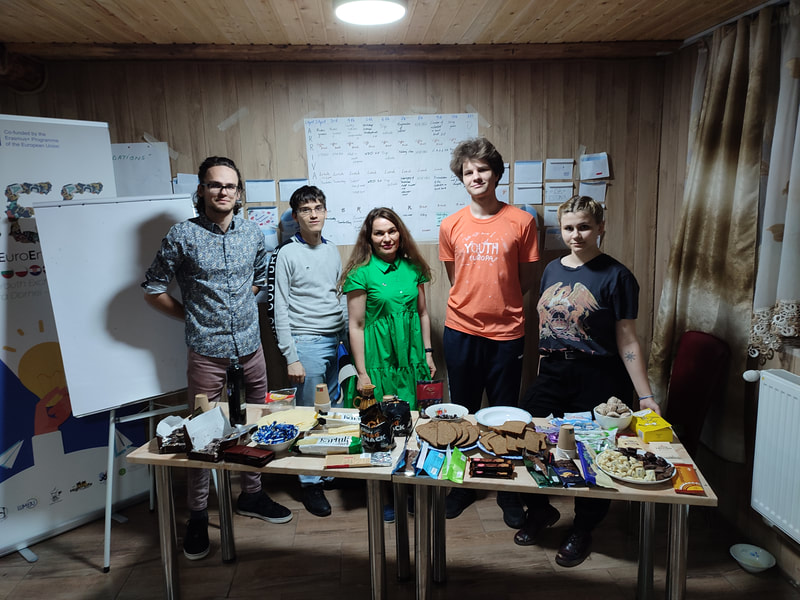
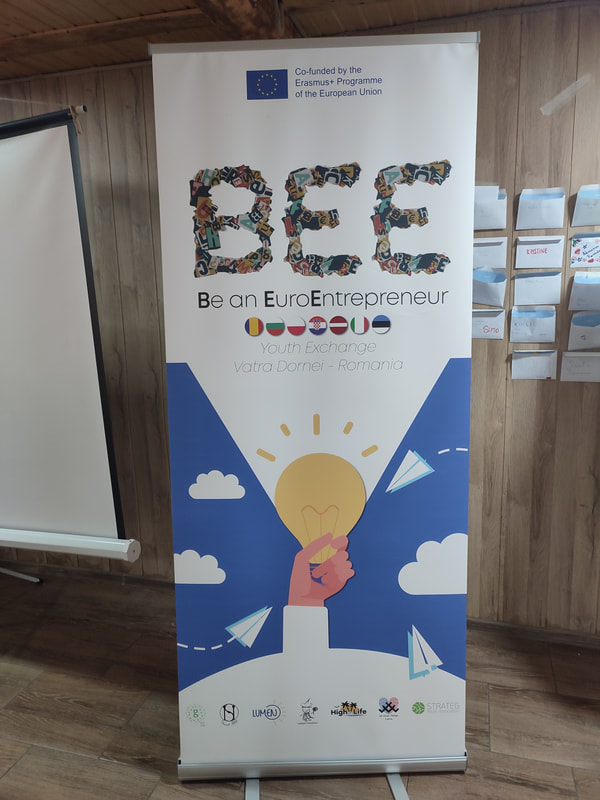



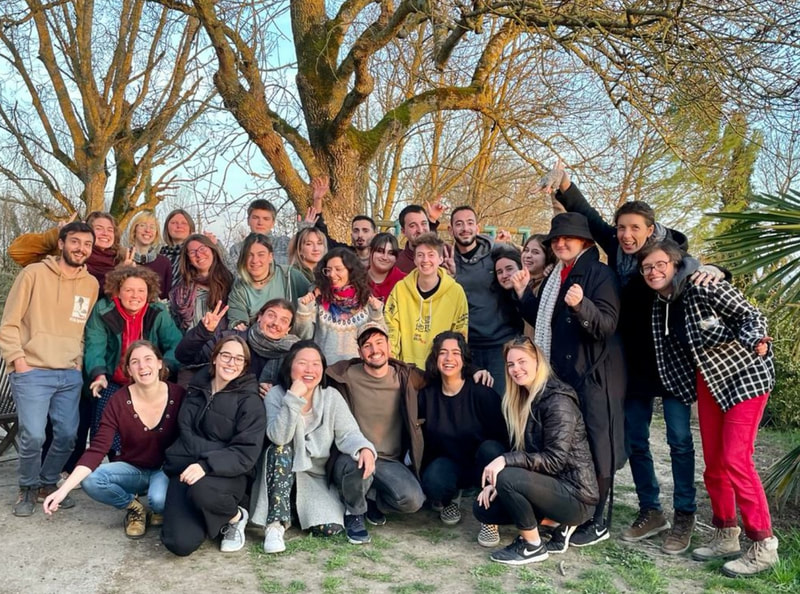
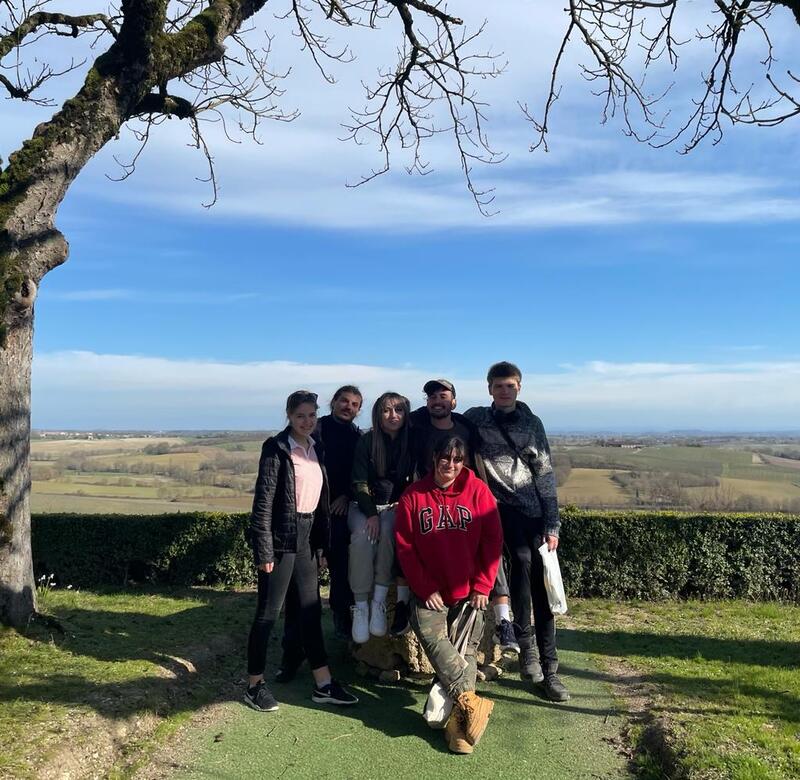
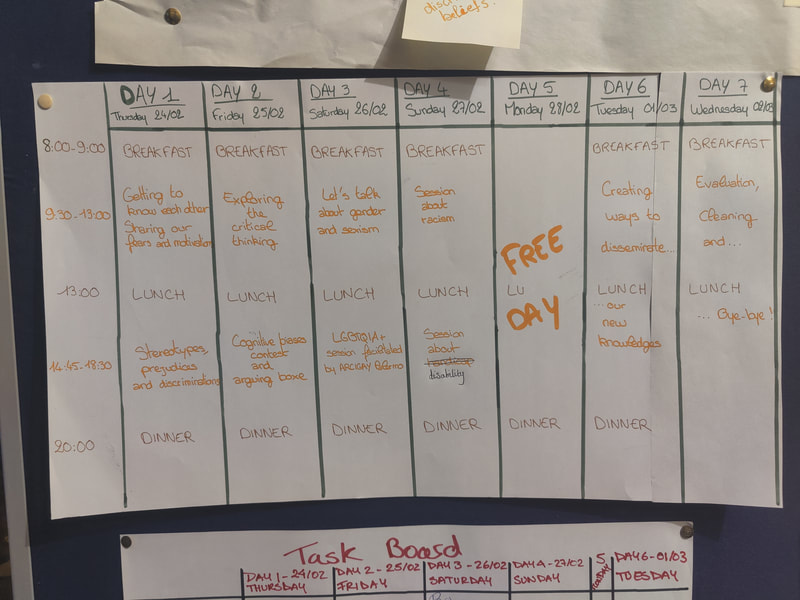
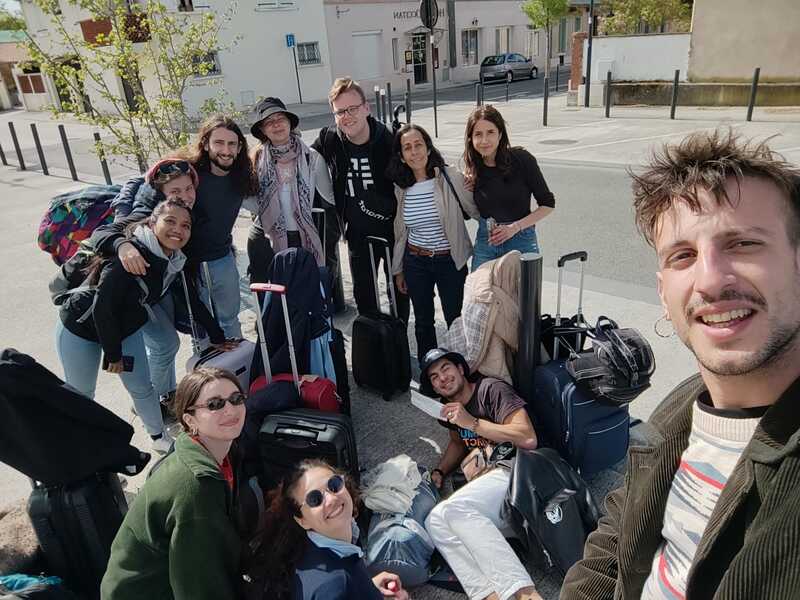
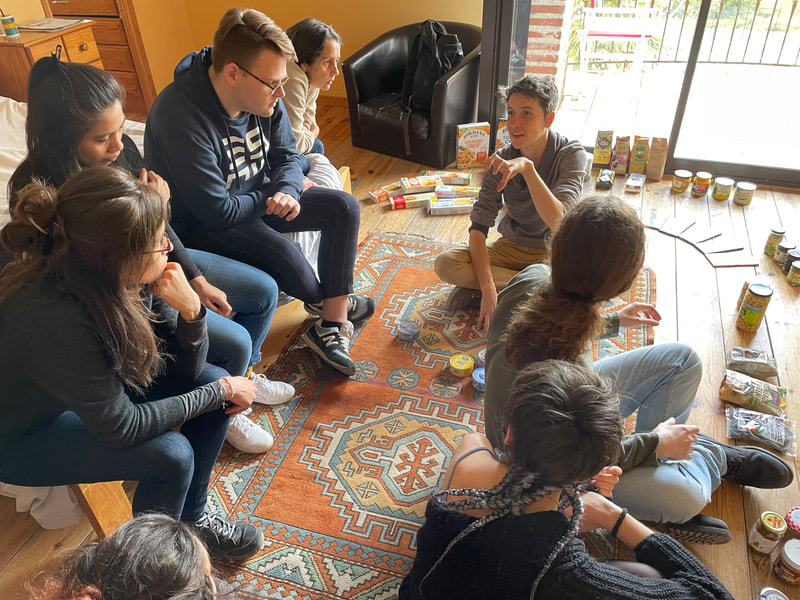
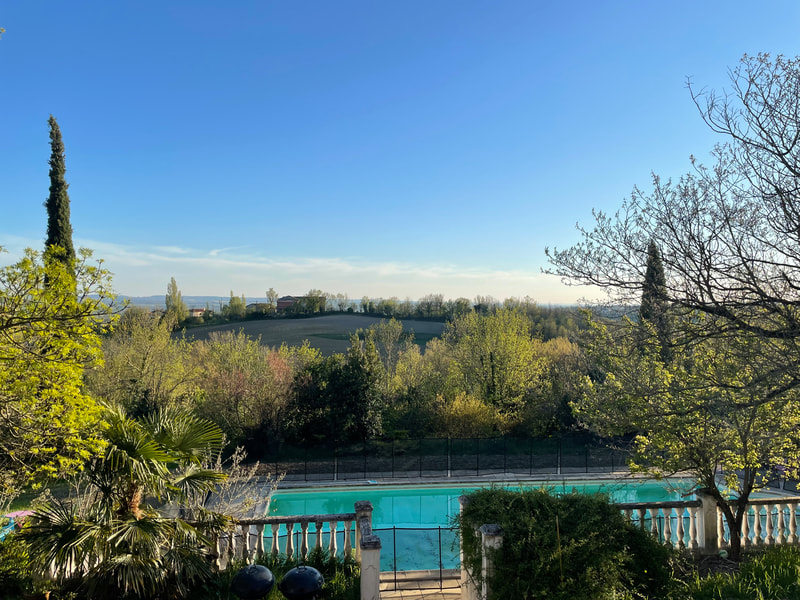
 RSS Feed
RSS Feed
